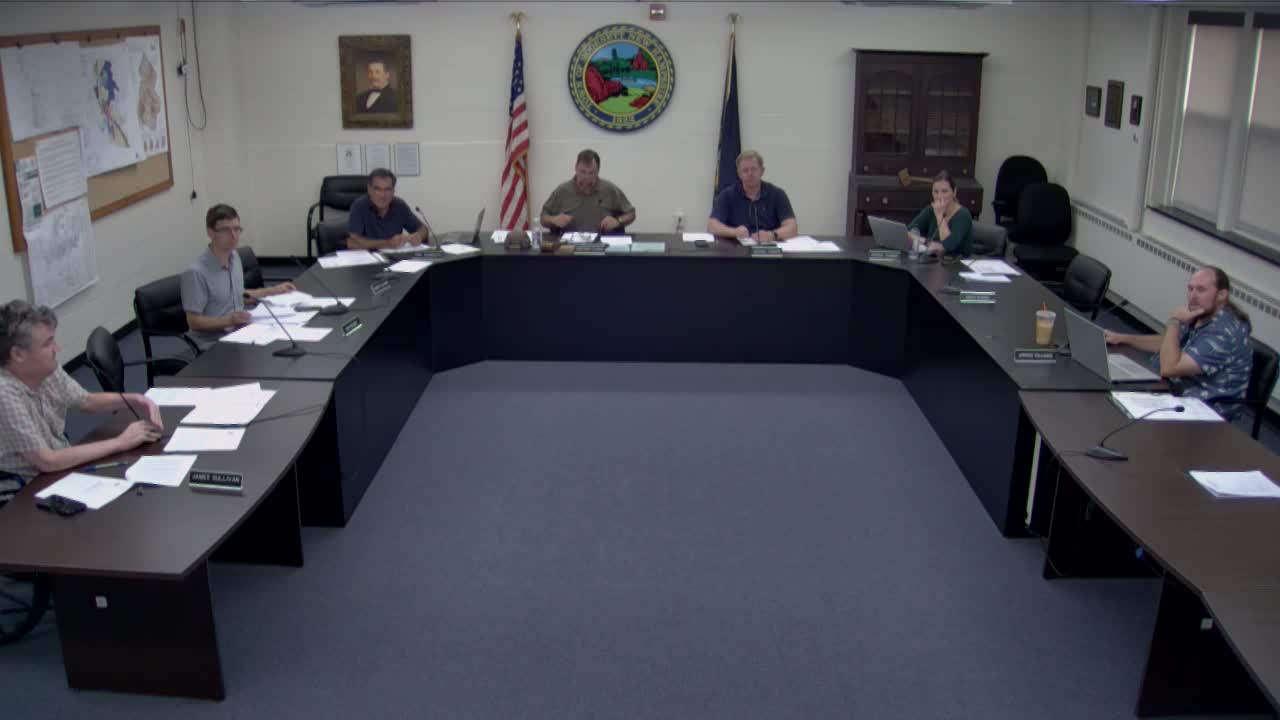Planning Board Recommends Auction for Two Town-Owned Properties in Hooksett
August 04, 2025 | Hooksett, Merrimack County , New Hampshire
This article was created by AI summarizing key points discussed. AI makes mistakes, so for full details and context, please refer to the video of the full meeting. Please report any errors so we can fix them. Report an error »

In the heart of Hooksett, city officials gathered under the bright lights of the planning board meeting to discuss the future of two town-owned properties. The atmosphere was charged with anticipation as members weighed the potential benefits of selling versus maintaining these parcels.
The discussion began with a focus on the first lot, where a member highlighted the advantages of selling to Eversource, a utility company with adjacent land. "When you have to buy wetlands, that's when it's more expensive," they noted, emphasizing the financial wisdom of offloading the property now rather than later. The conversation quickly shifted to the second lot, which is significantly impacted by upcoming infrastructure changes. With plans to widen Route 3 in 2028, the lot's size and usability are expected to diminish, raising concerns about its future viability.
As the board deliberated, a motion was proposed to recommend to the town council that the properties be sold rather than maintained. "The planning board sees no benefit to the town maintaining it," stated a member, advocating for outreach to neighboring property owners before considering an auction. This sentiment resonated with many, leading to a split motion that allowed for further discussion on the auction method.
The second property, a small lot with a vacant ranch house, drew particular attention. Members expressed skepticism about its development potential, given the stringent regulations and the loss of nonconforming rights due to its prolonged vacancy. "If anybody tried to develop it, the setbacks leave little to no building envelope," one member remarked, suggesting that demolition might be the only viable option.
Despite the challenges, some members argued for an auction, believing it could yield better returns for the town. "I think that this one should go to auction because it does have frontage," one member asserted, highlighting the lot's potential despite its limitations.
As the meeting progressed, the planning board ultimately voted in favor of recommending the auction of the second property, reflecting a consensus that selling these parcels could serve the town's interests better than holding onto them. The discussions underscored a pivotal moment for Hooksett, as officials navigated the complexities of land management and community development, setting the stage for future growth and opportunity.
The discussion began with a focus on the first lot, where a member highlighted the advantages of selling to Eversource, a utility company with adjacent land. "When you have to buy wetlands, that's when it's more expensive," they noted, emphasizing the financial wisdom of offloading the property now rather than later. The conversation quickly shifted to the second lot, which is significantly impacted by upcoming infrastructure changes. With plans to widen Route 3 in 2028, the lot's size and usability are expected to diminish, raising concerns about its future viability.
As the board deliberated, a motion was proposed to recommend to the town council that the properties be sold rather than maintained. "The planning board sees no benefit to the town maintaining it," stated a member, advocating for outreach to neighboring property owners before considering an auction. This sentiment resonated with many, leading to a split motion that allowed for further discussion on the auction method.
The second property, a small lot with a vacant ranch house, drew particular attention. Members expressed skepticism about its development potential, given the stringent regulations and the loss of nonconforming rights due to its prolonged vacancy. "If anybody tried to develop it, the setbacks leave little to no building envelope," one member remarked, suggesting that demolition might be the only viable option.
Despite the challenges, some members argued for an auction, believing it could yield better returns for the town. "I think that this one should go to auction because it does have frontage," one member asserted, highlighting the lot's potential despite its limitations.
As the meeting progressed, the planning board ultimately voted in favor of recommending the auction of the second property, reflecting a consensus that selling these parcels could serve the town's interests better than holding onto them. The discussions underscored a pivotal moment for Hooksett, as officials navigated the complexities of land management and community development, setting the stage for future growth and opportunity.
View full meeting
This article is based on a recent meeting—watch the full video and explore the complete transcript for deeper insights into the discussion.
View full meeting
